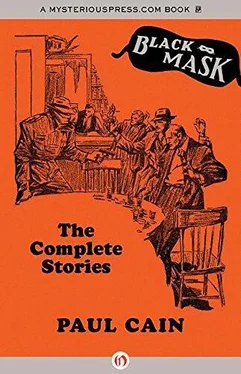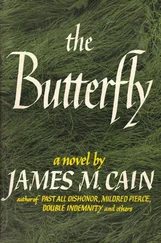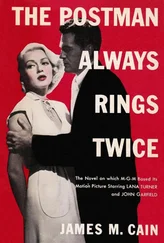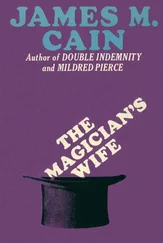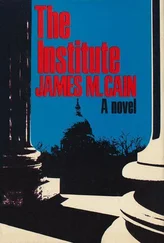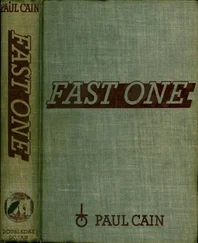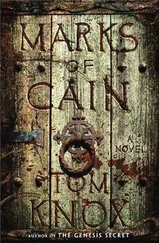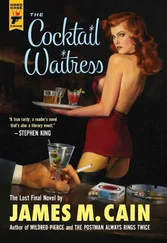There wasn’t very much light but I could hear the launch going away and Dekker’s voice jabbering softly in Dutch for a moment, then lapsing into his stilted, precise English. I turned my head and tried hard to listen.
I knew enough Dutch and could catch enough of the English to know he was propositioning the skipper. The point seemed to be that the skipper didn’t know what Jolas — evidently his only passenger — was carrying, and Dekker was telling him all about the emeralds, with lots of adjectives and gestures, and trying to sell him the idea of upping anchor and shoving off for St Thomas or Kingston or Halifax, anywhere out of the States where they could cash in on the stones.
I found out later that Dekker had brought a case of instruments along and was all set to go to work at his trade. I didn’t understand what he proposed doing with Jolas but I found out about that in a little while.
I guess he made it sound pretty good to the Captain because I heard him give some orders in Dutch and in a little while I heard the winch puffing and the anchor chain rattling up. I couldn’t move and it wasn’t a lot of fun lying there and thinking what a damned idiot I’d been and wondering what was going to happen to me.
Then I heard two shots aft a little ways. I tried to sit up but someone came up behind me and kicked me in the head and I went bye-bye again. When I came to that time I was lying in the scupper and the deck was shaking under me; we were underway. The thing that interested me most, though, was that someone was crawling toward me along the scupper; I could see the outline of a man’s head and shoulders very faintly against an afterdeck light.
Then the man’s head was near mine and he was whispering. It was Jolas. I found out later he had a slug in his belly and one high in the right side of his chest. Dekker had left him for dead and he’d managed to crawl over about forty feet of littered, slippery deck.
He gasped something unintelligible, the only recognizable word of which was revolver, and I suddenly felt my hands slip free. I heard a knife click on the deck as it slid from his hand and he slumped forward, down; I twisted around and groped in the darkness, found the knife and cut the line around my ankles.
It is certain that Jolas had no idea who I was; he knew only that I was tied up and was very evidently opposed to Dekker. He raised his head a little and tried to speak again; I leaned very close to him and above the shriek of the wind and the roar of the engines made out the words:
“Revolver... in coat... cabin...”
He succeeded in raising one arm a little, pointing aft.
It probably took me ten minutes to crawl forty feet. A seaman passed twice and someone who looked like a Chinese mess-boy. I flattened myself against the deck in the shadow of the bulkhead and they went by without noticing me.
The door of a cabin was open, swinging in the wind; I waited until the deck was clear, jumped up and ran across to it. I hadn’t realized how groggy I was until I stood up; I barely made the cabin, stumbled and fell inside. It was very dark. I guess I must have been pretty nutty. I didn’t think anything about whose cabin this might be — I just took it for granted it must be Jolas’. I got up as soon as my head stopped spinning, found the clothes press in one corner and groped for a coat.
Anyway I found a revolver. It was an old-fashioned eight-shot Krupp and loaded. I stuck it into my pocket and felt my way along the bulkhead toward the door; bumped into the washbasin. That was one of the swellest breaks of the evening; I filled the basin with cold water, doused my head, and felt like three or four new men.
The next five minutes were something like a three-ring circus, something like a shooting gallery. It’s surprising how much hell one man with a gun and a grudge and nothing to lose can raise on a ship. Especially when he isn’t expected.
I went forward, up to the bridge without running into anybody. Dekker and the skipper were bent over the chart-table; there was one man at the wheel and another with his nose pressed against the glass of one of the wheelhouse ports.
I shot Dekker. I didn’t think about it at all. I just shot him where it would hold him for a while, and his knees got soft and went outward, and he sank down to the deck. The Captain whirled around and jerked at one of the drawers in the chart table. I only had seven cartridges and I had to make all of them work; I squeezed the Krupp again and I’ll be damned if I didn’t miss him — at about ten feet. I guess I was about three-quarters slug-nutty. I got him, second shot, and the other two men put up their hands.
A guy started up the bridge ladder behind me and I got him first shot, too. That was all. I told the man at the wheel to put the ship about, and I held the revolver so that it was plenty conspicuous and told the other man — he turned out to be the Mate — to tell the radio man to call the police radio boats and tell them to stand by.
The Mate seemed to think everything I asked him to do was very reasonable. He was a very bright guy. That was about all, except for about a million cops and a lot of noise.
Jolas was dead. Dekker was tried in New York and was stuck, among other things, for Lina’s murder. He’d been scared of Lina turning them in ever since she’d backed out on bringing the stones over.
He was over at the flat when Ornitz called from the restaurant and told her I wanted to see her, and when she said she was going over to see me, a private dick, he didn’t take any chances. Then he waited for me outside, watched me go in, and when I came out he tried to let me have it from the blue coupé. He thought I knew a lot more about the whole setup than I did. When he missed he figured the best thing to do was proposition me about a split on the reward, and if I bit he could eliminate me at the earliest opportunity.
The Wister boys are in a Limey prison for long enough. I don’t know what happened to Mrs Wister but I don’t worry about her much. I think she can do a pretty good job of taking care of herself.
I had a headache for a couple of weeks that moved back and forth between the place Dekker’s sidekick smacked me with a timber and the spot back of the ear where the guy on the ship kicked me. But my cut of the reward paid for a lot of aspirin.
In fine weather, of which there was a spate that summer, it was the whim of M. Etienne de Rocoque to emerge from his restaurant in East Sixty-first Street at exactly six-thirteen of an evening and stroll west to Fifth Avenue, south to Sixtieth, east to Park Avenue, north to Sixty-first, and so back to the restaurant and home. It had been discovered by long and diligent experiment that the time he now habitually chose for these somewhat circumscribed excursions was the approximate sixteen minutes between the last home-hurrying stragglers of the commercial day and the first diversion-bent explorers of the night: the streets were comparatively deserted.
He was invariably accompanied by Bubu, a Nubian dwarf, who trotted about two paces behind and a little to the left of his master carrying a narghile from which the latter drew long, deeply pleasurable puffs of green Surinam tobacco, dispensed them in great green clouds upon the silky evening air. They were — Etienne globular and enormous in polka-dotted seersucker and Persian slippers, wielding a vast palmetto fan, Bubu tiny and tatterdemalion in a ragged cloth-of-gold jerkin, his eager little ape-face glistening like an eggplant — a striking and somehow heartwarming pair.
Etienne’s immensity had confounded medical science, most especially biochemistry, for a long time. Early in life he had worn his liver and certain other gastrically essential equipment down to tenuous and entirely decorative nubbins, had at the time we now observe him subsisted on thin cornmeal gruel and distilled water for upwards of eleven years, but he still tipped the scale at three hundred and three pounds in his shantung shorts. This anomaly had led at least one Harvard professor, nameless here, who had devoted most of his mature life to protein research, shrilly to cry “No!” and fling himself backwards into the Charles River.
Читать дальше
